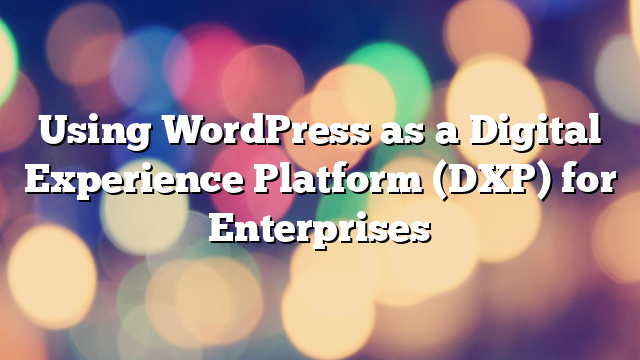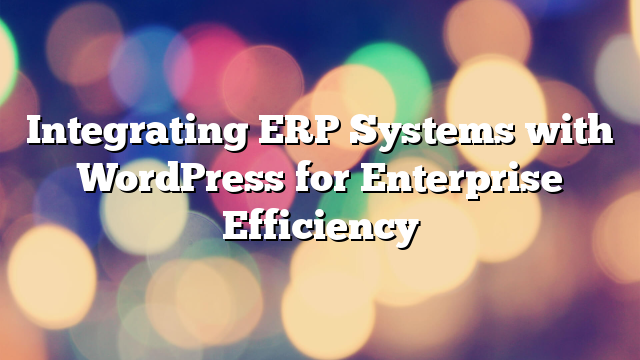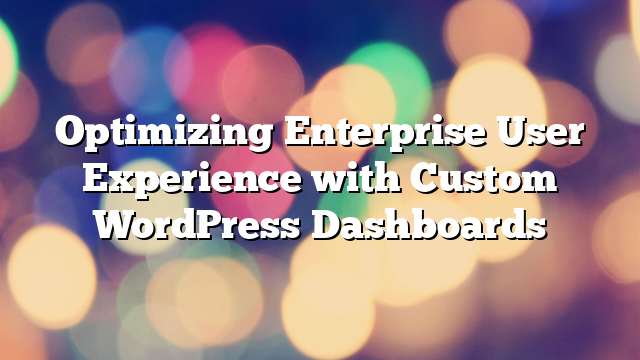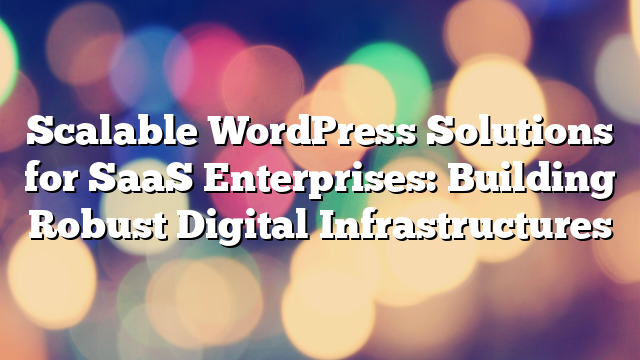Using WordPress as a Digital Experience Platform (DXP) for Enterprises
11.04.2025

What Is a Digital Experience Platform?
A Digital Experience Platform (DXP) is more than just a CMS—it’s an integrated set of tools that allows enterprises to deliver personalized, seamless digital experiences across multiple channels. From websites and mobile apps to customer portals and IoT interfaces, a DXP enables consistent branding, content, and engagement strategies. While traditional DXPs are complex and costly, WordPress offers a flexible, scalable, and cost-effective alternative.
Why WordPress Can Compete as a DXP
Modern WordPress has evolved far beyond blogging. With its extensive ecosystem of plugins, REST and GraphQL APIs, and support for headless architecture, WordPress can power dynamic, omnichannel experiences. It integrates smoothly with CRMs, marketing automation tools, e-commerce platforms, and data analytics—allowing enterprises to centralize content and deliver it wherever their users are.
Custom Content Models and Personalization
With tools like Advanced Custom Fields (ACF), Custom Post Types (CPTs), and user metadata, WordPress can support complex content modeling. When paired with personalization engines or user behavior tracking, enterprises can serve tailored content to different segments. Whether it’s showing location-based news or product suggestions based on browsing history, WordPress supports it with ease.
Headless WordPress for Omnichannel Delivery
One of the major drivers behind WordPress as a DXP is headless architecture. Content can be created in WordPress and delivered via APIs to mobile apps, kiosks, digital signage, or SPAs built with Next.js or React. This separation not only improves performance and scalability but also opens the door for microservice integrations and flexible UI design.
Multilingual and Multisite Capabilities
Enterprises operating in multiple markets need localized experiences. WordPress supports multilingual content through plugins like WPML or Polylang and allows brand or region-specific management with Multisite. This structure makes it easy to scale content operations globally while maintaining brand consistency and governance.
Enterprise Integrations and APIs
Whether it’s connecting to Salesforce, HubSpot, SAP, or custom-built ERPs, WordPress can serve as a hub in the digital experience ecosystem. REST and GraphQL APIs allow two-way communication with these tools, enabling real-time data synchronization and smarter user journeys. Integration with marketing automation tools also empowers lead nurturing and behavioral targeting.
Security and Compliance for Enterprise Needs
As a DXP, WordPress must be secure and compliant. With proper configuration, security plugins, and infrastructure best practices (like WAFs, regular patching, and isolated environments), WordPress can meet enterprise standards. GDPR compliance, cookie consent, data encryption, and audit trails can all be achieved with the right strategy and tooling.
Performance and Scalability
To function as a DXP, WordPress must perform well under high traffic and heavy content usage. Leveraging object caching (Redis), full-page caching (Varnish, Cloudflare), CDN integration, and cloud-based infrastructure (AWS, GCP) ensures WordPress remains fast and responsive. Scalable backend setups with horizontal scaling and CI/CD pipelines further enhance deployment agility.
Conclusion
WordPress, when engineered properly, can serve as a powerful Digital Experience Platform for enterprises. Its flexibility, extensibility, and cost-efficiency make it a strong alternative to proprietary DXP solutions. By combining headless delivery, robust integrations, and content personalization, enterprises can provide rich, engaging, and scalable digital experiences to users worldwide.
Want to explore how WordPress can be your enterprise DXP? Discover our services or request a custom consultation today.



